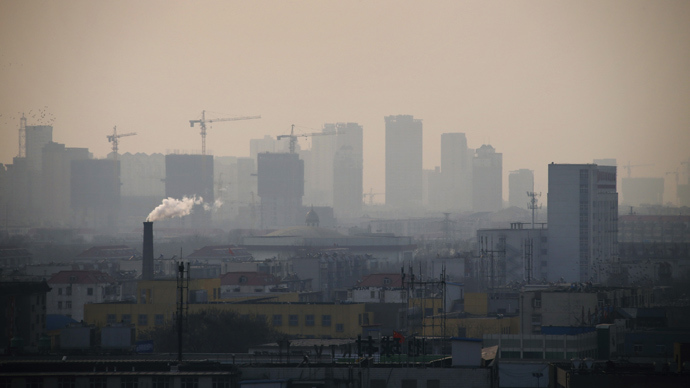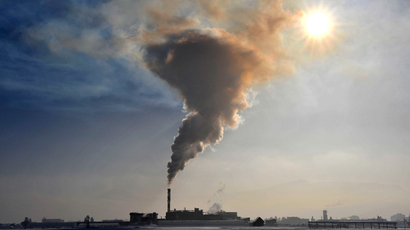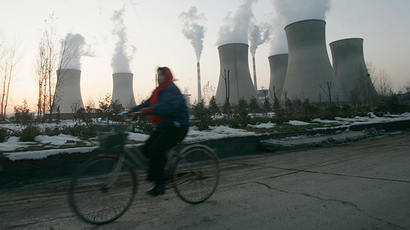Pollution level China: 96 percent of cities fail environmental probes

The vast majority of Chinese cities monitored for pollution fail to meet Beijing-set standards, China’s vice-minister of environmental protection says. China is mulling declaring “war” on the pollution resulting from the country’s rapid economic growth.
Seventy-one out of 74 cities monitored in China over 2013 did not
meet state environmental standards with various degrees of
problems, vice-minister of the Chinese Environmental Protection
Ministry, Wu Xiaoqing, has announced.
Speaking on the sidelines of the annual parliament session in
Beijing, Wu admitted that China was suffering the consequences of
rapid industrialization.
“When we were chasing GDP growth, we were also paying the price
in pollution, and this price is heavy, in fact massive,” the
Chinese official told reporters, Reuters quotes.
Of the cities inspected, only Haikou in the island province of
Hainan, the Tibetan capital Lhasa and the coastal resort city of
Zhoushan met standards. A total of 3.7 million people live in
those cities combined. The others have been struggling to cope
with such problems as urban smog, polluted water supplies and
industrial contamination of land, causing growing public concern.
According to Wu, the country’s pollution problems can only be
solved by fundamental changes in its resource-intensive economy.
For that, “upgrading” and diversifying Chinese economy
have been included in the government’s agenda.
Beijing invested more than 300 billion yuan ($49 billion) on
environmental protection in 2013, which was a 14 percent increase
from 2012. This year the funding is likely to increase on a
similar scale, Wu said.
China’s Premier Li Keqiang on Wednesday vowed to the parliament
that the country would “declare war on pollution” in the
same way it declared war on poverty, Reuters reports. The
parliament has been drafting changes to the country’s 1989
environmental protection law that would raise the fines for
violating environmental standards and ensure that polluters pay.
According to Wu, three of the main Chinese industrial regions,
Beijing, Hebei and Tianjin, produce 30 percent of China’s
pollution while occupying just 8 percent of the country’s
territory. The average emissions there are five times higher than
anywhere else in China.
What Beijing is eyeing as immediate measures has, however, been
criticized as simply shifting the pollution burden to other, less
polluted regions.
“China’s central and western regions are rich in coal, and
their environmental capacity is better than the
Beijing-Hebei-Tianjin region, so we are encouraging them to
develop coal-to-gas and to replace coal burning in eastern
regions,” Wu said.
The three regions in question are producing 55 percent of China’s
steel, 40 percent of its cement and 52 percent of its gasoline
and diesel.
The overwhelming level of pollution caused by this production has
prompted scientists to compare the smog-covered Chinese capital’s
environment to a “nuclear winter” and prompted local authorities
to start developing special anti-smog drones and artificial rain.
The problem, however, is not tied to the central and western
regions only. A man from China’s northern Hebei province recently
attempted to sue his home city after a law prohibiting motorists
from driving every day was enforced due to thick haze.
Moreover, pollution has started affecting the country’s
neighbors. Ministers from China, Japan and South Korea have
agreed to meet in May to discuss ways to mitigate the rising
levels of pollution in the region, as China is being criticized
for its excessive use of coal-burning power stations.














